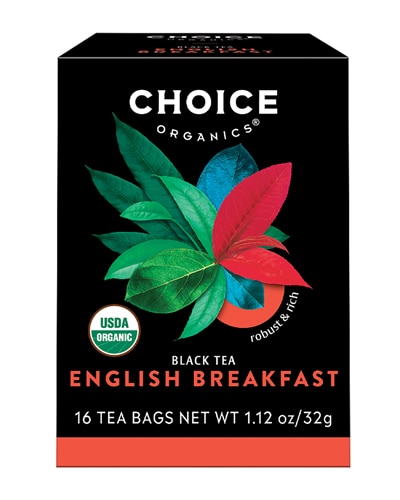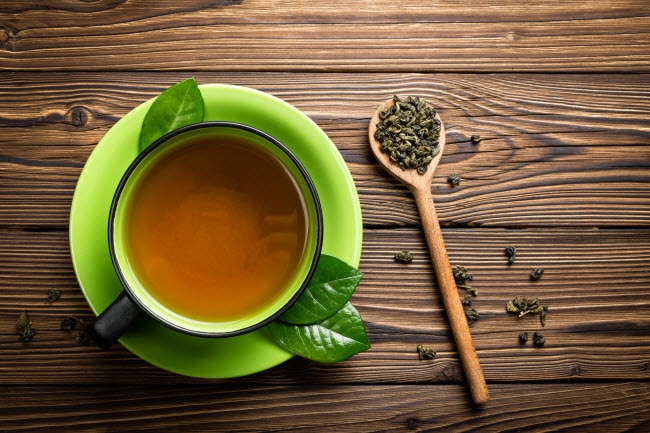Most of us are well-aware that green tea packs a powerful punch, potentially supporting everything from metabolism to recall.†
And yet, how many of us pause to consider what, exactly, is it about green tea that renders it amazing?
Buddhist monks did—in part because of the green tea they drank. Green tea proved to enrich their ability to concentrate while also promoting relaxation—the very things needed to meditate successfully. Western scientists later demonstrated that those monks were onto something: The caffeine in green tea boosts alertness, and one of its bioactive compounds organically encourages “wakeful relaxation.”†
That compound, L-theanine, is increasingly in the limelight—and for good reason. The amino acid, derived from green tea and select mushrooms, has a wealth of potential health benefits. Here’s all you need to know about L-theanine, and why you may want to make like a monk and get more of it in your diet.
What are some L-theanine benefits?
One of the greatest promises of L-theanine is that it may help support healthy levels of GABA, dopamine and serotonin—all key neurotransmitters that have a radical impact on your state of happiness and your ability to cope with life’s challenges.† As the National Institutes of Health reports, L-theanine "significantly increases activity in the alpha frequency band, which indicates that it relaxes the mind without inducing drowsiness.” Its stimulating and yet soothing effects on the brain makes it a leading choice for a good night’s sleep. A 2018 study, for one, showed that participants reported improved rest after taking L-theanine daily for eight weeks. What’s more, L-theanine has been linked to immune function and supporting blood pressure already within healthy range.†
As for the benefits green tea provided those aforementioned monks? Emerging data—including a 2016 study out of the University of Canberra in Australia—reveals that L-theanine bolsters mental performance, particularly when it’s paired with caffeine (such as green tea).†
How much L-theanine do I need?
Amino acids are critical to well-being—giving you the building blocks you need to produce fundamental proteins, hormones and neurotransmitters—but L-theanine is deemed a non-dietary, nonessential compound (meaning, you don’t have to get it from your diet or elsewhere). That being said, those prone to occasional anxiety and hyperactivity are especially good candidates for this supplement: Research shows that L-theanine can produce a sense of calm in as little as 30 minutes after ingesting it.†
What L-theanine foods should I reach for?
L-theanine isn’t in many of the foods we eat on a daily basis but it is found in green tea, black tea and white tea. It’s also present in the mushroom species, Xerocomus badius (or Bay Bolete), which come from the same family as porcinis.
Is it possible to have too much L-theanine?
Drinking excessive amounts of tea in order to receive L-theanine’s benefits may backfire—especially if you select caffeinated teas. Possible side effects of overdoing it include nervousness, nausea, irritability and insomnia. As for L-theanine alone: Data on it remains inconclusive, Healthline reports, but thus far there have been no reports of side effects or overdose.
Should I take an L-theanine supplement?
If you happen to be one of the 40 million Americans suffering from anxiety but want to try a natural approach to coping , L-theanine may be right for you. The same holds true for those who have difficulty concentrating due to excessive worry.† As with all supplements, it’s vital to consult with your doctor first to ensure it will be a good fit—and to guarantee that it won’t interact with your other supplements and/or medications. (The Memorial Sloan Kettering Cancer Center, for example, reports that certain polyphenols in green tea may reduce the efficacy of cancer drugs, while additional data shows that L-theanine should not be taken with drugs used to control blood pressure and stimulants.)
Additionally, given that research on the safety of L-theanine supplementation during pregnancy remains incomplete, it’s best to avoid taking it when expecting. If you do get the green light, consider Vitacost L-Theanine, which supplies 200 mg of L-theanine per single-capsule serving. In turn, it may serve you that feeling of calm those ancient Buddhist monks were after.†
†These statements have not been approved by the Food and Drug Administration. These products are not intended to diagnose, treat, cure or prevent disease.




